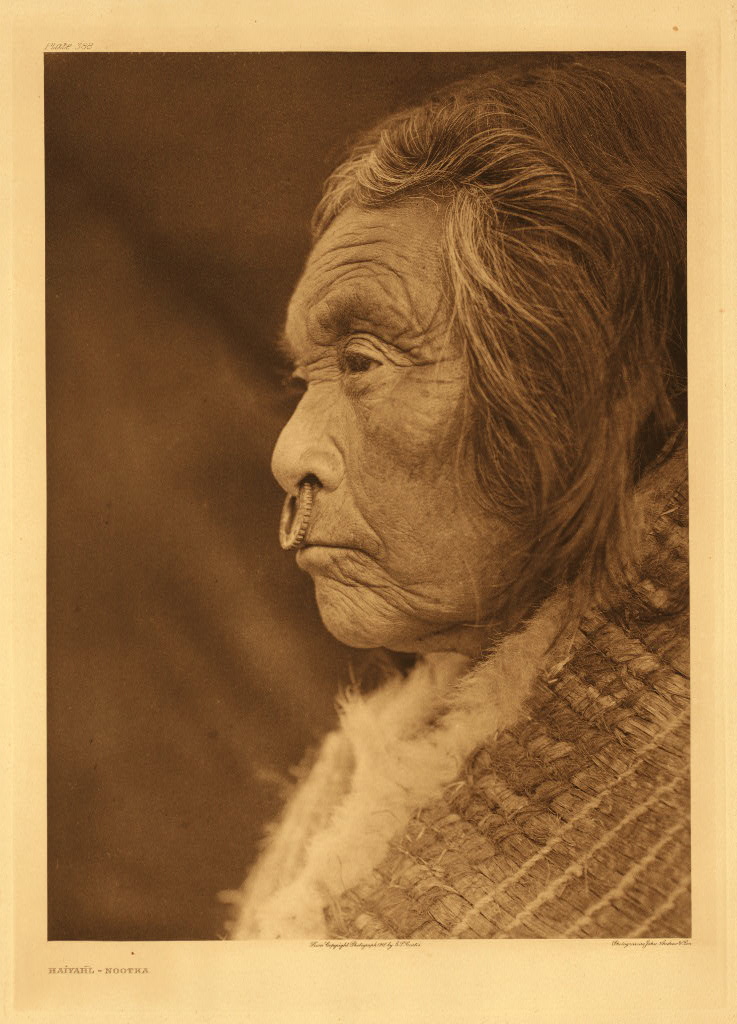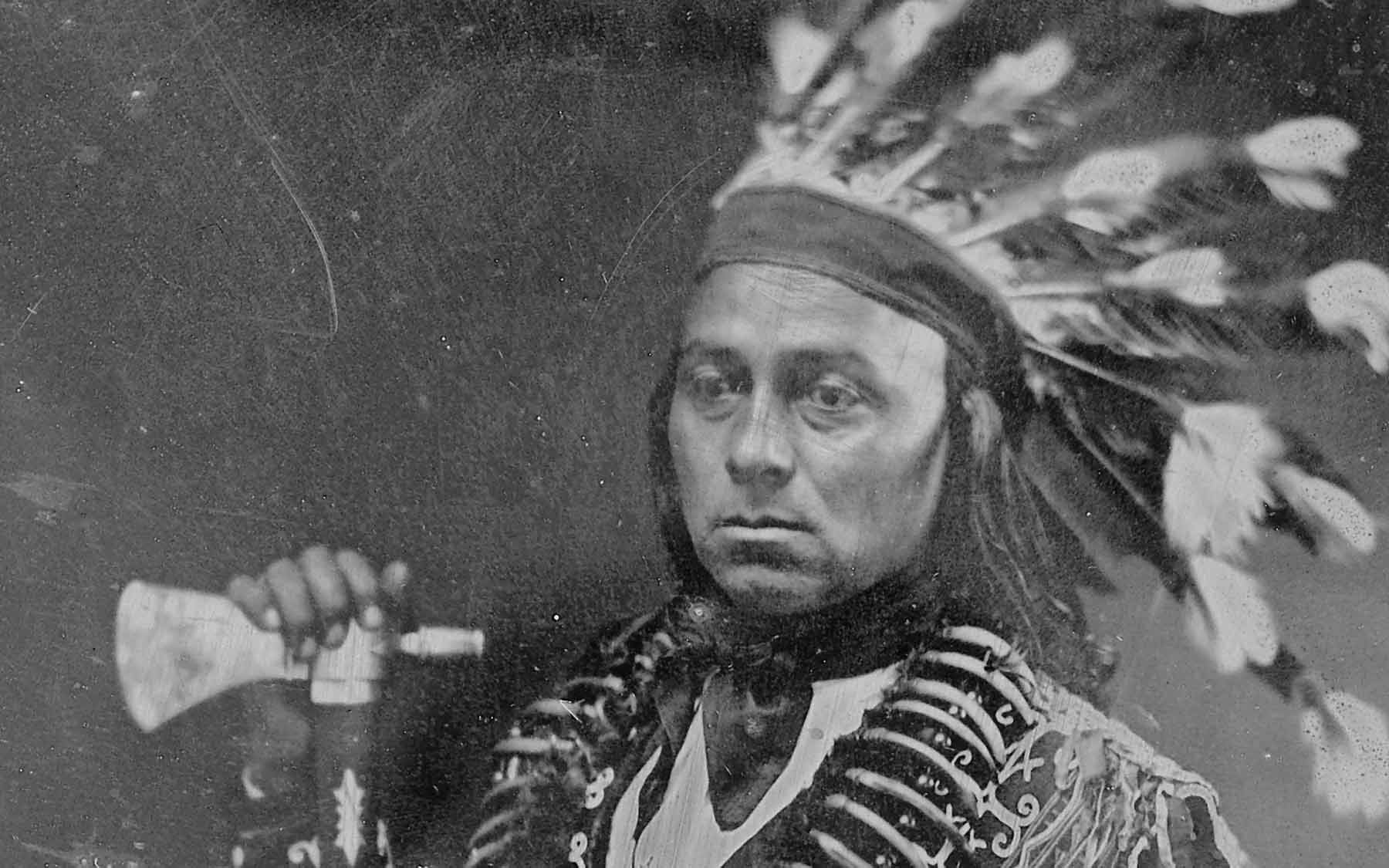Shawn A-in-chut Atleo, chief, activist, businessman (born 16 January 1967 in Ahousaht, BC). Shawn Atleo was twice elected National Chief of the Assembly of First Nations (AFN). A Hereditary Chief of the Ahousaht First Nation in British Columbia, he also served as Regional Chief of the BC AFN, and was the first Indigenous university chancellor in British Columbia. As a leader, Atleo has emphasized education and the potential of Indigenous youth, treaty and land claim reforms, environmental management and resource sharing, as well as unity and a cooperative approach.

Early Life and Education
Atleo was born in 1967 in the community of Ahousaht on the west coast of Vancouver Island in the Clayoquot Sound area. He is one of three Hereditary Chiefs of the Ahousaht First Nation, the largest of the Nuu-chah-nulth nations. (See also First Nations in Canada.) Atleo established a number of businesses in the Nanaimo area, including Umeek Human Resource Development, an adult counselling and job training institute. In 2003, he received a Master of Education degree in Adult Learning and Global Change from the University of Technology in Sydney, Australia (in partnership with the University of British Columbia).
Political Career
From 2003 to 2009, Atleo served as Regional Chief of the British Columbia Assembly of First Nations (BC AFN). As Regional Chief he played an important role in many initiatives, including leading an AFN delegation to Indonesia to help rebuild the Indigenous communities of Banda Aceh, which had been devastated by the 2004 Indian Ocean earthquake and tsunami. In 2005, Atleo played a key role in forming the First Nations Leadership Council, through which the BC AFN, the First Nations Summit (FNS), and the Union of BC Indian Chiefs (UBCIC) could work together, increasing the political influence of First Nations organizations in British Columbia. In the same year, he and Phil Fontaine (then the AFN National Chief) negotiated the First Nations-Federal Crown Political Accord on the Recognition and Implementation of First Nations Governments. The accord established a joint steering committee which was mandated to work on self-government, among other issues. In 2008, Atleo was named Chancellor of Vancouver Island University (formerly Malaspina University-College), the first Indigenous person to hold the position of university chancellor in British Columbia.
Atleo came to the 2009 national chief elections with significant political experience, but was not widely known outside British Columbia; despite this, he was elected as national chief in 2009 and again in 2012. As national chief, Atleo emphasized unity, education, the end of violence against women, the building of sustainable communities, access to resource revenues, environmental protection, treaty implementation, the recognition of Aboriginal title, and comprehensive claims reforms. On 24 January 2012 he played a key role in the Crown-First Nations gathering, which resulted in general agreement that the Indian Act needed to be changed, and included some discussion of education reform and economic development; however, no specific commitments were made. A joint statement by the federal government and the AFN promised to release a progress report on 24 January 2013. As that date approached, Atleo and the AFN were increasingly criticized for not pushing the federal government hard enough on First Nations issues.
The dissension within the AFN came to national attention with the Idle No More protests and the fast of Chief Theresa Spence in late 2012 and early 2013. Public pressure led to a working meeting on 11 January 2013 between the prime minister and Atleo, as well as other members of the AFN, which resulted in the promise of future meetings and “high-level dialogue” on treaties and land claims. However, a number of chiefs boycotted the talks and some even called for a motion of non-confidence in Atleo. Two days after this meeting, Atleo took a brief medical leave from his position—citing overwork, stress, and illness—but returned on 24 January 2013. However, Atleo resigned as national chief of the AFN on 2 May 2014, amidst controversy over his support for Bill C-33: First Nations Control of First Nations Education Act. Three days later, the Conservative government announced that it would postpone the legislation until the AFN clarified its position on the proposed reforms.

International Initiatives
In addition to Atleo’s political activity in Canada, he has also been involved in international dialogue and initiatives. As Regional Chief of the BC AFN, Atleo participated in talks related to the United Nations Declaration of the Rights of Indigenous Peoples. He also worked with the Indigenous Peoples Caucus at the Organization of American States. Atleo is a member of the World Future Council, a charitable foundation that works for the rights of future generations through advocacy and the establishment of organizations such as AREA (African Renewable Energy Alliance).
Awards and Honours
Atleo has received several honourary degrees from various educational institutions. Atleo’s other awards and honours include:
- Alumni Award for Excellence, Faculty of Arts and Social Sciences, University of Technology, Sydney, Australia (2011)
- Queen Elizabeth II Diamond Jubilee Medal (2012)
- Indspire Award for Education (formerly National Aboriginal Achievement Award) (2013)
- First Distinguished Fellow of the William A. MacDonald, Q.C. Fellowship in Indigenous Education, Ontario Institute for Studies in Education, University of Toronto (2014)

 Share on Facebook
Share on Facebook Share on X
Share on X Share by Email
Share by Email Share on Google Classroom
Share on Google Classroom







